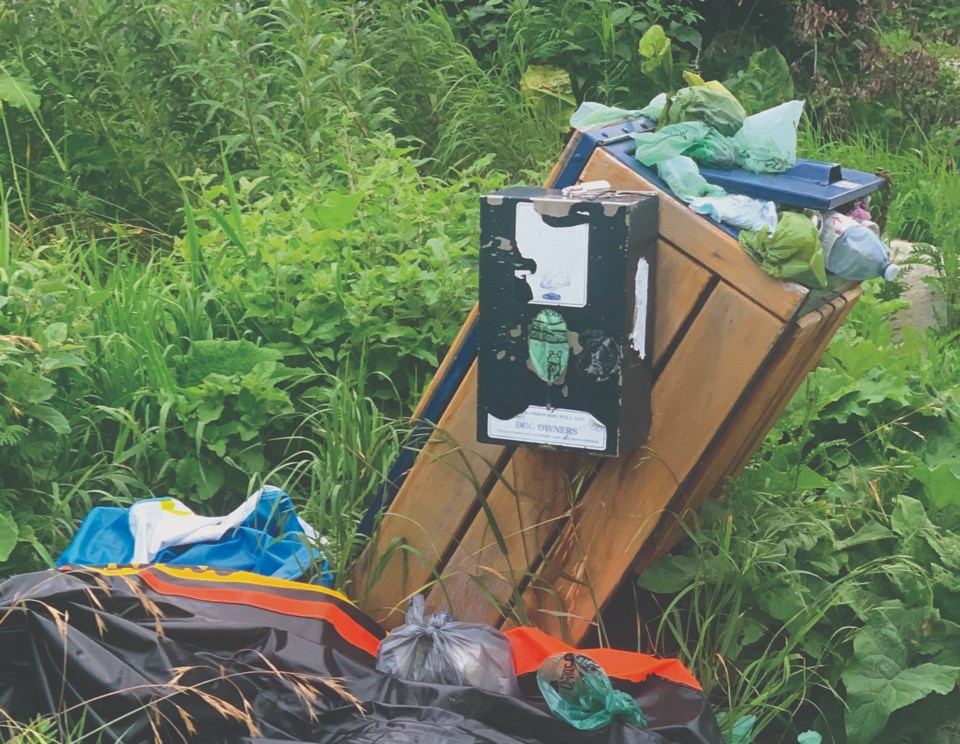It’s been a good year for dog bites in Whistler—assuming, of course, you like it when people get bit by dogs.
According to a presentation to Whistler’s mayor and council on Sept. 26, reports of dog bites jumped from 10 in 2022 to 17 this year, while calls related to animal responsibility in general also climbed slightly, from 110 to 118.
Overall, Whistler’s bylaw department saw a similar volume of calls year-over-year, from 715 in 2022 to 717 this year.
“The most noticeable increase is our solid waste complaints have almost doubled [from 65 to 112],” said bylaw supervisor Juan Pineda in a presentation to council.
Solid waste calls are often connected to garbage and other improperly-disposed-of bear attractants—which is crucial to get a handle on this year in particular, noted Councillor Arthur De Jong, as the current berry crop for Whistler’s bears has “crashed.”
“We’re in a very desperate situation through October, and we can’t message that strongly enough to our community, that we need a full waste lock down,” De Jong said.
Reports of illegal nightly rentals were also up, from 21 to 39.
“While we’re seeing compliance generally quite high, actually, illegal nightly rentals can change the look and feel of a neighbourhood. Sometimes it can displace the local workforce as well as will result in any enforcement action when we are seeing illegally rentals,” said protective services manager Lindsay DeBou, in a presentation to council.
Since September 2021, 15 tickets for illegal nightly rentals have been disputed, and all but one were upheld, DeBou said.
Resort Municipality of Whistler (RMOW) bylaw has doled out 17,592 parking tickets so far this year, which is actually down slightly from the 18,629 handed out at the same point last year.
“We were issuing around 67 tickets per day, for last year, and this year we’re at 68, so pretty similar,” DeBou said, adding that bylaw has also seen a reduction in complaints this year.
“One thing that we’ve really done a really good job of, and I attribute this to the team, is when we do get a complaint in an area, we’re being really proactive in those areas,” she said.
“So the community is really good at letting us know where the problems are, and then we continue to maintain and look at those areas.”
Local bylaw officers are also hearing positive things about new messaging and signage around the resort.
“We’re hearing that people appreciate the signage and efforts we have around compliance on a range of subjects, such as dogs off-leash, smoking, and open liquor,” Pineda said. “From April through September, we have a dedicated team of four park and trail ambassadors that patrol over 40 kilometres of Valley Trail, public spaces and parks.”
Year-round pay parking in the Day Lots, as well as higher rates, are unsurprisingly having a positive impact on revenues.
Once operating costs are paid for, revenue from pay parking in the Day Lots is used to expand transit and active transportation initiatives in Whistler. Prior to 2021, the Day Lots contributed, on average, about $1 million to the Community Transportation Initiatives Fund annually.
That jumped in 2022 to $1,359,182, and is on pace in 2023 to crack the $1.8 million mark.
Whistler’s bylaw department typically receives about 1,000 disputes annually, most of which are resolved internally and don’t require adjudication, DeBou said. So far this year, the RMOW has hosted three adjudication hearings covering 18 disputes—16 of which were upheld.
As for getting people to actually pay their fines, the RMOW recently issued a Request For Proposals for a debt collection agency to collect outstanding payments on behalf of the municipality, DeBou added.
“We continue to advocate with the province for ways to collect debt that reduces staff time,” she said. “That’s an initiative that many municipalities across the board are taking up with [the Union of BC Municipalities].”




